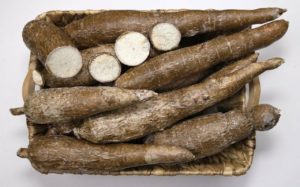
Cassava, a staple food crop in many tropical regions, is gaining increasing attention as a versatile and sustainable resource for a variety of products. With its high starch content and adaptability to different climates, cassava offers exciting opportunities for entrepreneurs looking to build a green and profitable business.
Why Cassava Processing is a Green Business
Cassava processing can be considered a green business for several reasons:
Sustainable Crop: Cassava is a drought-resistant crop that requires minimal inputs, making it an environmentally friendly option compared to other staple crops.
Waste Utilization: Cassava processing generates by-products like peels and pulp, which can be used for animal feed, biogas production, or even as a raw material for other industries, reducing waste and creating additional revenue streams.
Reduced Carbon Footprint: By processing cassava locally, transportation costs and associated emissions can be significantly reduced compared to importing processed cassava products.
Biodegradable Products: Cassava can be used to produce biodegradable plastics and other eco-friendly alternatives to traditional petroleum-based products.
Opportunities in Cassava Processing
The versatility of cassava opens up a wide range of business opportunities:
Food Products: Cassava can be processed into various food products like flour, starch, chips, and traditional dishes like garri and fufu. These products can be sold locally or exported, catering to a growing demand for cassava-based foods.
Animal Feed: Cassava by-products can be used to produce nutritious and cost-effective animal feed, addressing the needs of the livestock industry.
Industrial Products: Cassava starch is used in various industries, including textiles, paper, adhesives, and pharmaceuticals. Entrepreneurs can explore opportunities in supplying cassava starch to these industries.
Bioenergy: Cassava can be used to produce bioethanol, a renewable fuel source that can help reduce dependence on fossil fuels.
Biodegradable Plastics: Cassava starch can be used to produce biodegradable plastics, offering a sustainable alternative to conventional plastics.
Setting up a Green Cassava Processing Business
Starting a cassava processing business requires careful planning and execution. Here are some key steps to consider:
Market Research: Conduct thorough market research to identify potential customers and understand their needs and preferences.
Business Plan: Develop a comprehensive business plan that outlines your business goals, strategies, and financial projections.
Sourcing Cassava: Establish a reliable supply of cassava roots from local farmers or by cultivating your own farm.
Processing Equipment: Invest in appropriate processing equipment based on your target products and production scale.
Waste Management: Implement a sustainable waste management system to utilize cassava by-products and minimize environmental impact.
Marketing and Sales: Develop a marketing strategy to promote your products and reach your target customers.
Challenges and Considerations
While cassava processing offers numerous opportunities, there are also challenges to consider:
Seasonality: Cassava production can be seasonal, requiring proper storage and preservation techniques to ensure a continuous supply of raw materials.
Processing Technology: Choosing the right processing technology is crucial for product quality and efficiency.
Market Competition: The cassava processing market can be competitive, requiring businesses to differentiate their products and offer competitive pricing.
Environmental Impact: While cassava is a sustainable crop, processing can have environmental impacts if not managed properly. It’s essential to implement eco-friendly practices and waste management systems.
Conclusion
Cassava processing presents a promising avenue for entrepreneurs looking to build a green and profitable business. By leveraging the versatility of cassava and adopting sustainable practices, businesses can contribute to environmental sustainability while creating economic opportunities and meeting the growing demand for cassava-based products. With careful planning, market research, and a commitment to sustainability, cassava processing can be a rewarding and impactful venture.



